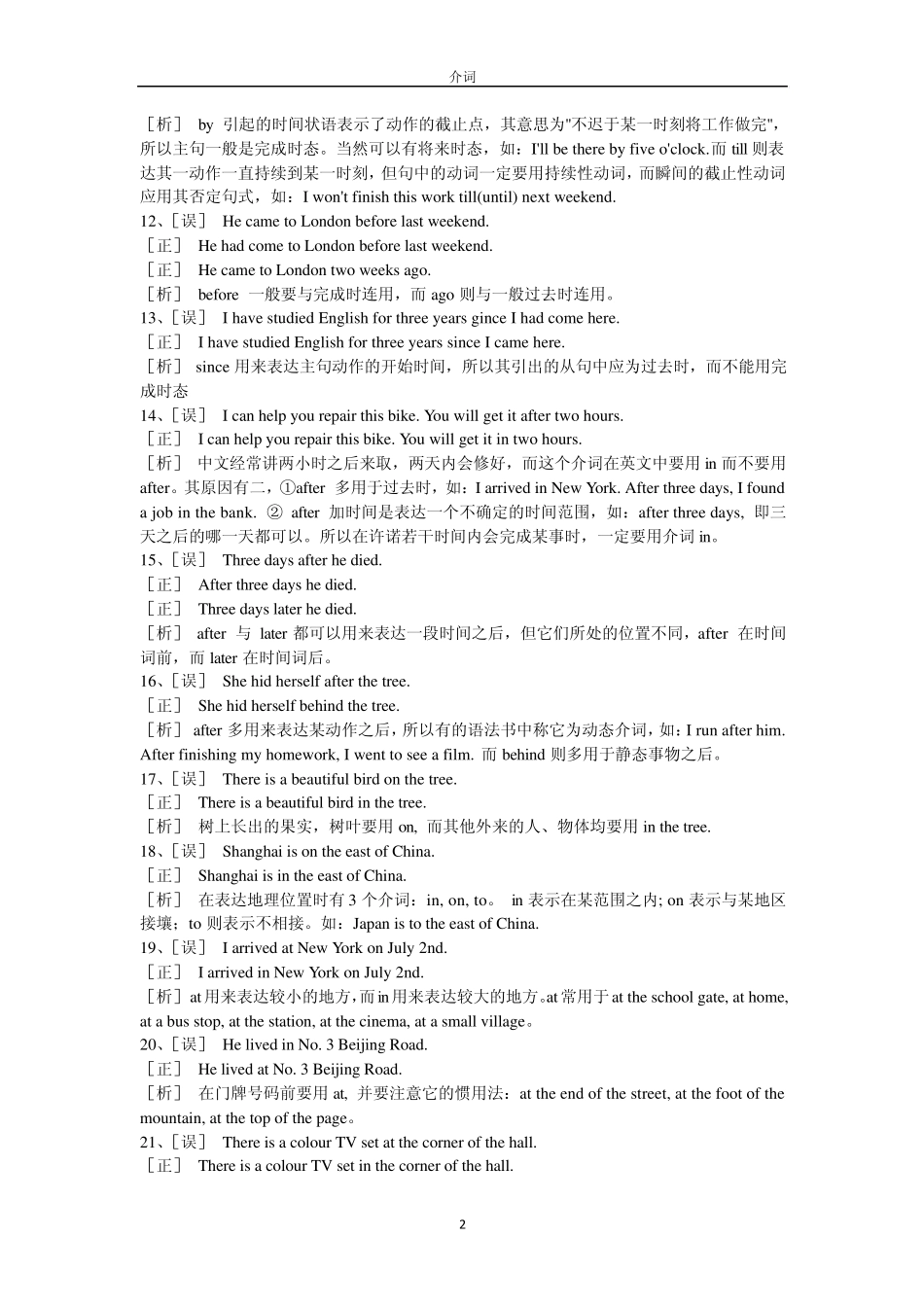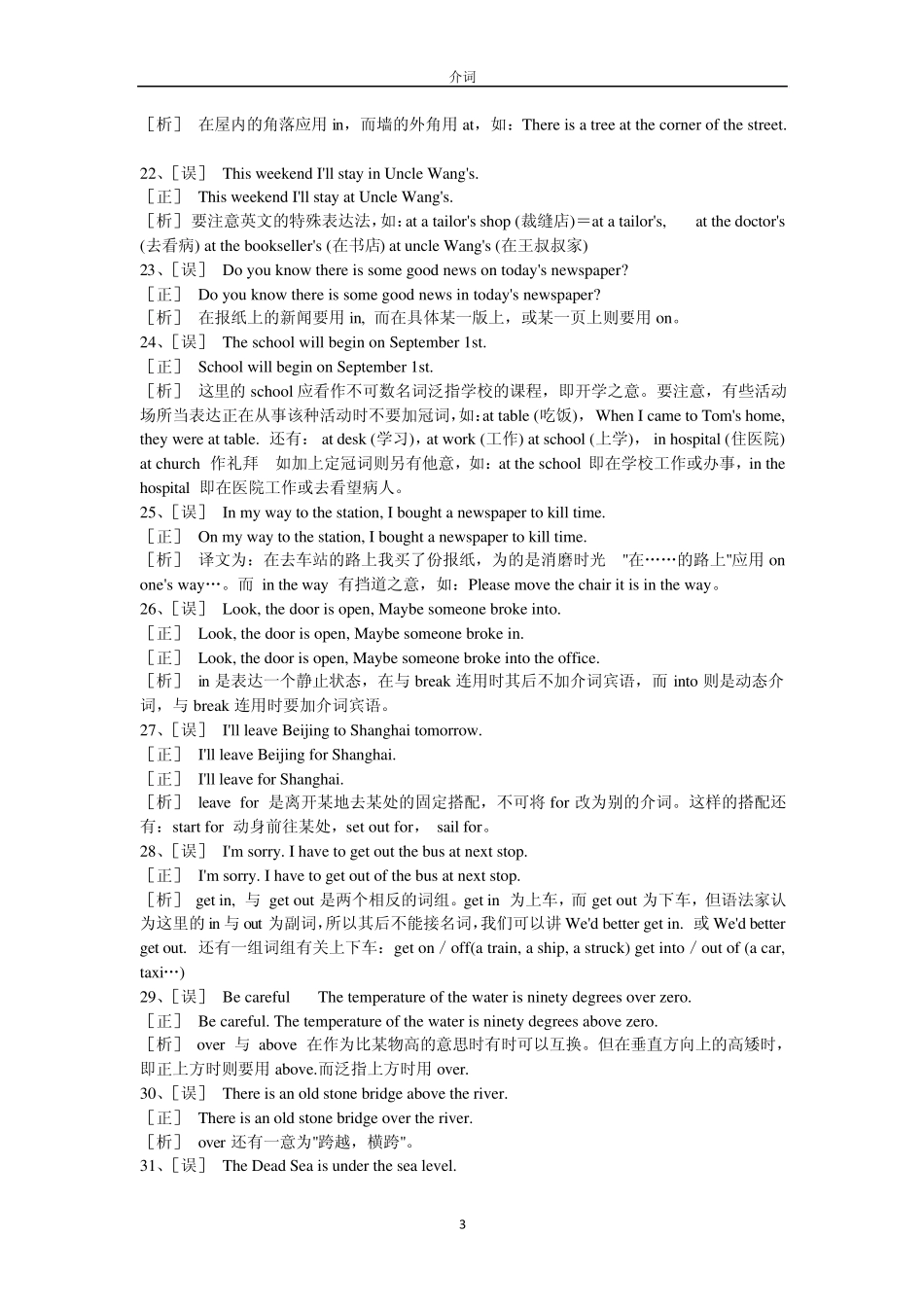介词 1 介 词 (一) 正误辨析 1、[误] We got to the top of the mountain in daybreak. [正] We got to the top of the mountain at day break. [析] at 用于具体时刻之前,如:sunrise, midday, noon, sunset, midnight, night。 2、[误] Don't sleep at daytime [正] Don't sleep in daytime. [析] in 要用于较长的一段时间之内,如:in the morning / afternoon, 或 in the week / month / year. 或 in spring / supper /autumn / winter 等等。 3、[误] We visited the old man in Sunday afternoon. [正] We visited the old man on Sunday afternoon. [析] in the morning, in the afternoon 如果在这两个短语中加入任何修饰词其前面的介词都要改为on, 如:on a cold morning, on the morning of July 14th 4、[误] He became a writter at his twenties [正] He became a writter in his twenties [析] 这句话应译为:他在20 多岁时就成了作家。在某人的一段生活时间段中要用介词in来表示,而在具体岁数时用at 来表示。 5、[误] He went to New York to find a job in sixteen years old. [正] He went to New York to find a job at sixteen. [析] 在具体年岁前用at, 如:at the age of 12, at your age, 等等。 6、[误] We went to swim in the river in a very hot day. [正] We went to swim in the river on a very hot day. [析] 具体某一天要用介词on, 又如:on New Year's Day 7、[误] I'm looking forward to seeing you on Christmas. [正] I'm looking for ward to seeing you at Christmas. [析] 在节日的当天用on,而全部节日期间用at,Christmas 是圣诞节期间,一般要有两周或更长的时间。 8、[误] I haven't see you during the summer holidays. [正] I haven't seen you since the beginning of the summer holidays. [析] during 表示在某一段时间之内,所以一般不与完成时搭配,如:I visited a lot of museums during the holiday....


